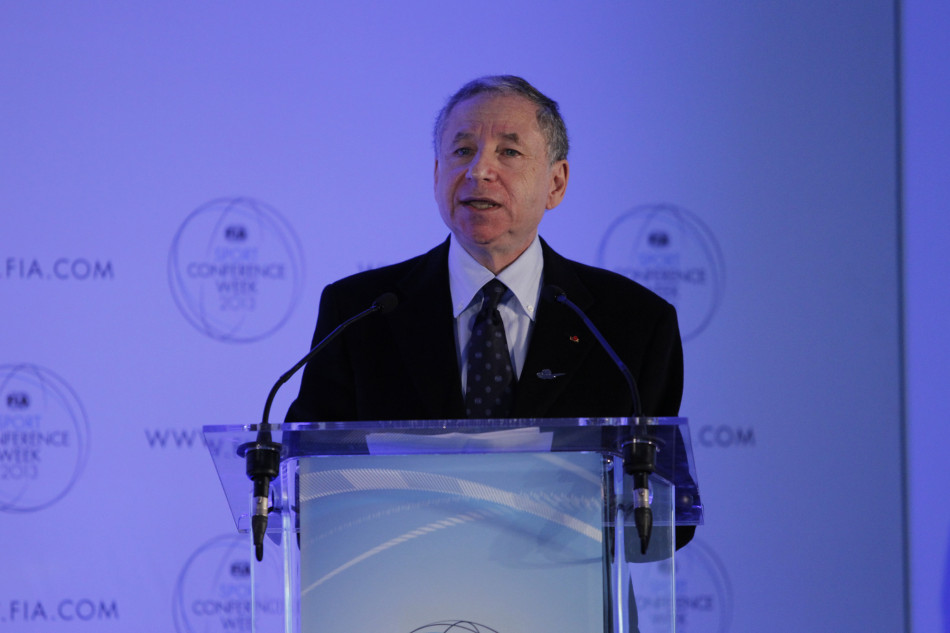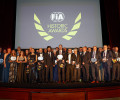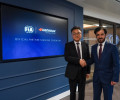Focusing on the future

FIA President Jean Todt launched the Federation’s first Sport Conference Week yesterday by saying that the three-day forum will help provide ASNs with the resources to meet the challenges facing motor sport in the years ahead.
“It is a good time to initiate a collective discussion on the development of our activities, to reflect on the future of motor sport and the role the FIA and its clubs should play in the coming years,” he told delegates at Goodwood House in the UK.
“Motor sport, like all sports, must face the challenges of our times: globalisation, consideration of environmental issues, competition from other sports, the financial crisis. In the face of all these challenges, the FIA has decided to take the initiative and provide ASNs with the tools needed to assist their development.”
President Todt told delegates that while the FIA has every reason to be pleased with the current state of its championships – mentioning the healthy state of competition in Formula One, the World Rally Championship and the World Endurance Championship – the Federation and its member ASNs must continue to progress motor sport.
“It is up to the FIA and its members,” he said. “If we allow other actors into our sport, they will define the conditions under which it is practised. We know that if we do not assume our responsibilities in this area and if we remain passive, others will take it upon themselves to give a direction to motor sport that may not be in line with our values and which would be detrimental to us in the end.
“We want modern competitions; we want attractive disciplines; we want real world championships and we want competition to be affordable for all.”
As such, he singled out the European F3 series as a championship being revitalised and said the WRC was being similarly rejuvenated.
“I would like to restore to it the prestige it deserves,” he said. “Rallies on all continents and rallies which recall the adventure and challenge of the 1970s; this is the road map I have given to Michèle Mouton and Jarmo Mahonen.”
The FIA President also stressed the importance of providing safe competition for all and made reference to recent tragic fatalities at the Canadian Grand Prix and at the Le Mans 24-Hour race.
“Ensuring safe conditions for motor sport was the objective of the first meeting of the founding clubs 110 years ago, and it remains one of our priorities today,” he said. “The terrible accidents in Le Mans and Montreal remind us that the practice of motor sport is demanding, calling for constant vigilance.
“I would like to take advantage of this opening session to pay tribute to (Le Mans driver) Allan Simonsen and (Montreal track worker) Mark Robinson, who lost their lives doing what they were most passionate about. Without all the volunteers, all the marshals, who enable our races to take place in good conditions, motor sport would simply not be possible.
Joining President Todt to open the event were FIA Deputy President for Sport Graham Stoker and FIA Institute President Gérard Saillant.
Deputy President Stoker welcomed delegates to the conference, highlighting Britain’s motor sports heritage and, in particular Goodwood’s place in that history, the conference venue having hosted the first post-WWII racing event at a permanent facility in Britain in 1948.
Commenting on the conference he added: “On reflection, I realised that I have been with the ASN in the UK for 29 years and I feel I know a lot of the issues that concern you and I think that over the next few days if we share our experiences and try to resolve those issues, we will emerge stronger. I fully support this conference on an annual basis.”
FIA Institute President Saillant explained the role of the body in safety and sustainability in motor sport and as the organisation approaches its 10th anniversary in 2014 detailed some of its achievements, including the development of wheel tethers in Formula One, improved safety barriers, accident data recorders in the WRC and its recent publication of the Guide to Medicine in Motor Sport.
Professor Saillant added that in an expansion of its portfolio the Institute is embarking on a new mission.
“We now have a new focus, which I believe should be our core remit – to help you, the ASNs, to develop motor sport worldwide,” he said.
“This is a subject the Institute first embraced in 2008 when we were selected by the FIA Foundation to manage the Motor Sport Safety Development Fund.
“Through the Fund programme we have distributed grants to 102 of the 136 ASNs across the world. The numbers are impressive: 30 million euros distributed to 270 separate projects, with over 65,000 officials trained and 6,500 young drivers educated.
“We are here to help you and we will continue to do so,” he concluded. “Whether that is through our continuing Outreach programme, with events around the world, or our accreditation schemes for officials’ training and environmental performance, we are here to support and encourage excellence in your important work.”

 Facebook
Facebook Twitter
Twitter






